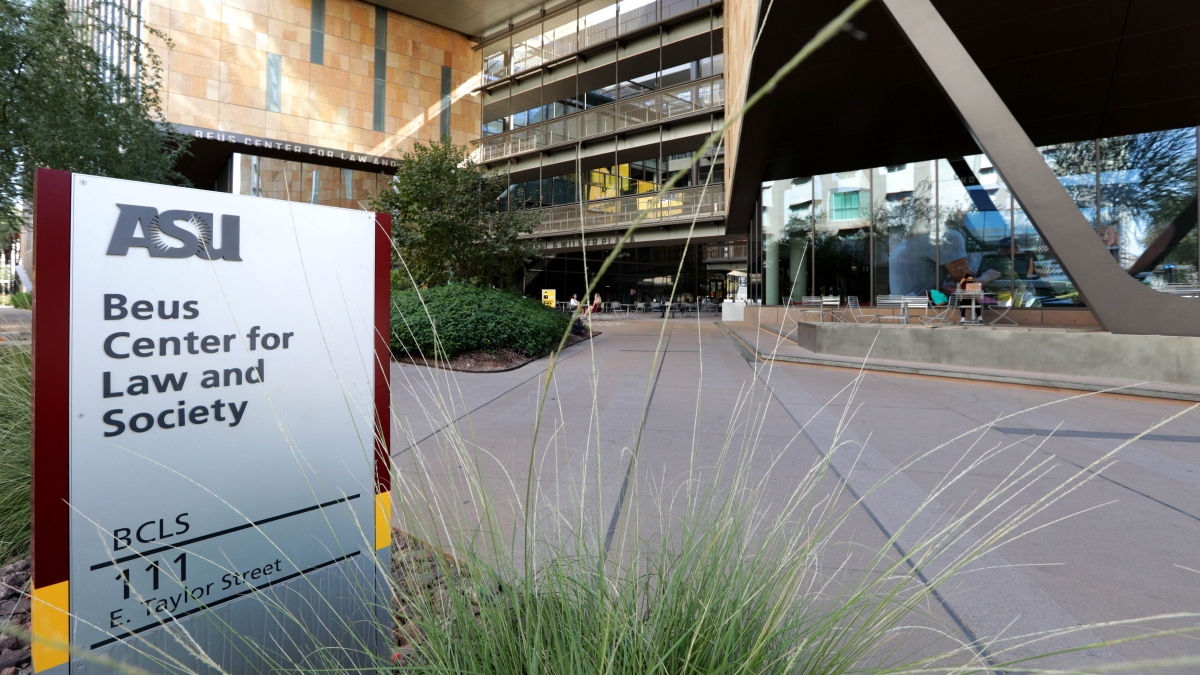ASU collaborates with ABA, other law schools on legal issues in policing, public safety

ASU Law's Beus Center for Law and Society in downtown Phoenix.
The Sandra Day O’Connor College of Law at Arizona State University is joining the American Bar Association and dozens of law schools across the country in the formation of a Legal Education Police Practices Consortium to contribute to the national effort to examine and address legal issues in policing and public safety, including conduct, oversight and the evolving nature of police work.
The consortium will leverage the ABA’s expertise in developing model police practices and that of participating ABA-accredited law schools to collaborate on projects to develop and implement better police practices throughout the U.S. Fifty-two law schools so far have agreed to participate in the consortium for the next five years.
“The ABA has the ability to bring together diverse groups to address these problems and the duty to act to help bring racial equality to our criminal justice system,” said ABA President Patricia Lee Refo. “The consortium will engage law students and legal experts from around the country in studying and forming solutions to help improve policing practices in our communities.”
ASU Law Dean Douglas Sylvester said, “The Sandra Day O’Connor College of Law is delighted to participate in this important endeavor. Not only does it advance important societal goals, consistent with ASU’s charter and design imperatives, but it also creates great opportunities for our students.”
Drawing on the geographic diversity of the ABA, the participating law schools and their networks, the consortium will advance the widespread adoption of model police practices and initiate other projects designed to support effective policing, promote racial equity in the criminal justice system and eliminate tactics that are racially motivated or have a disparate impact based on race.
The consortium will be organized and housed within the ABA Criminal Justice Section and will have input from and access to the full range of the ABA's expertise and programs. Each participating law school will develop opportunities for one or more of its law students to engage in consortium activities. Law student participant assignments may include:
- Promoting existing ABA policies at the local, state and national levels.
- Developing new policy for potential consideration by the ABA House of Delegates.
- Engaging with police departments and local, state and national leaders on police practices.
- Conducting research to support scholarship related to consortium goals.
- Providing support to public commentary and advocacy (research for op-eds, blogs and articles).
- Developing model curricula for law schools related to consortium goals.
View the ABA press release.
More Law, journalism and politics

A new twist on fantasy sports brought on by ASU ties
A new fantasy sports gaming app is taking traditional fantasy sports and mixing them with a strategic, territory-based twist.…

'Politics Beyond the Aisle' series to explore the stories of public officials
In an effort to build a stronger connection between students and political and civic leaders, Arizona State University’s School…

ASU committed to advancing free speech
A core pillar of democracy and our concept as a nation has always been freedom — that includes freedom of speech. But what does…

